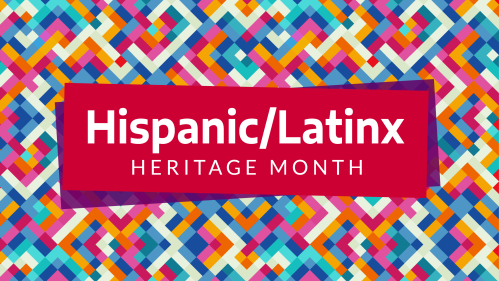
Rutgers Students Share Reflections for Hispanic Heritage Month

For Hispanic Heritage Month, we asked students to share brief essays reflecting on their identity. In their own words, students shared stories about the importance of preserving their native language, the challenge of being a non-English speaker in school, and the lessons they’ve learned from embracing their culture, their native food and their families. Here is what they had to say.
Tania Martinez
Class of 2022
Rutgers-Camden
Each year, Hispanic Heritage Month has a theme, and this year it is esperanza (hope). I have found my identity in the context of my culture. Since I was 15, I have dedicated my life to being outspoken and advocating for my community with pride.
All my life I have wanted my family of mixed-status to feel more welcome in this country. I watched their fear grow as the rhetoric against immigrants has worsened, and president after president has disappointed them. I saw the looks of pity and frustration towards my parents for having an accent. Despite this, my mom worked hard for years balancing a back-breaking job, being a super mom, and studying for her citizenship test, even when she couldn’t afford it. I didn’t see myself reflected in mainstream media, in positions of power, nor in the U.S. history books. Growing up, it was normal to feel othered and “less than.”
These feelings were only amplified by going to a white school where the Latinx population was stereotyped. I didn’t connect my identity to my indigenous roots and instead defined myself in how others viewed me, as “the shy little Hispanic girl.” My mom helped me realize how special the Latinx community is. She would take me to these amazing backyard community fundraising events where we would come together for an undocumented student struggling to pay tuition or a family without health care whose child is fighting cancer. I realized that supporting one another represents what it means to be an American, even if not everyone had the paperwork that said so. My mom inspired me to view my identity completely differently because of her heart and hope, and it brought me the greatest joy when she passed her citizenship test last week. I hope to see a nation where pathways to citizenship are available to all. I see my mom as a beacon of hope for others, and I hope to be the kind of American my mom has been all along.
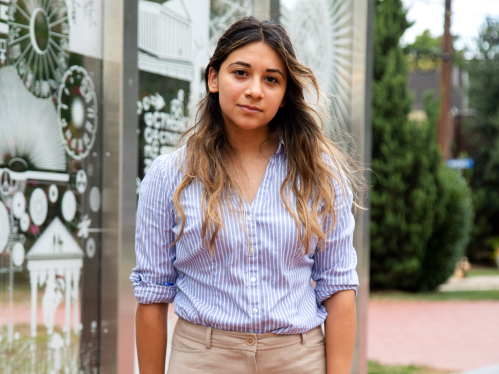
Steven Munoz
First-Year Medical School Student
New Jersey Medical School
My family on both sides are from Colombia. It is a beautiful place filled with wonderful people and has a rich and vibrant history and culture. There are many ways my family and I celebrate our heritage and roots. One of the big things we do at home every Sunday is make sancocho, a very popular cuisine in Colombia. It has chicken, yucca, potato, carrots, cilantro and is often served with avocado on the side (I highly recommend it!). While it's harder when I am away at school, during winter or summer breaks we always eat this together every week to spend quality family time with each other.
In Colombia, it is also very common to live with and care for grandparents and even extended family. My grandmother has lived with our family for a long time. She played a big part in teaching us how to cook, speak Spanish, and learn our family history. While she took care of us when we were young, her responsibility shifts to my sister and I to help her with her needs.
Music is a huge part of the culture as well. Especially at holidays, traditional music, especially that of Guillermo Buitrago, can be heard throughout the entire month of December at home. We even have a guacharaca (a type of instrument that is played by scraping) that we sometimes play at Christmas time. These are just a couple of the things my family and I do for our culture.
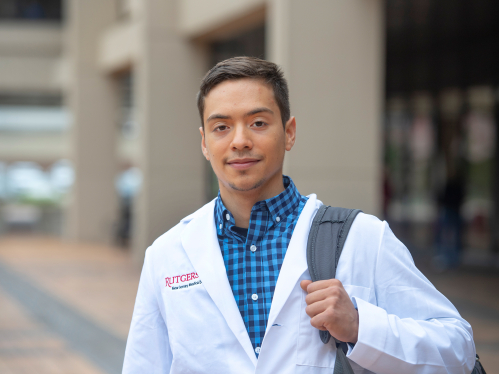
Camila Correa
Class of 2024
Rutgers-New Brunswick Honors College
School of Arts and Sciences
Rutgers-New Brunswick
My Latin culture has always been a strong part of my life. My parents grew up in Ecuador and chose to raise their family in the United States because of the opportunities it offered. Even so, they never truly left Ecuador behind. From the language to the customs, my parents made sure I kept their heritage alive by teaching me what they could.
As a college student, I now face a point in my life where I no longer can rely on my parents to remind me of my cultural customs. It is up to me to maintain my cultural identity. So, I had to ask myself...What do I appreciate about my heritage?
It did not take me long to realize the key part of my heritage that I loved celebrating: the cuisine. I would classify myself as a foodie or perhaps in other words, food-obsessed. However, my palette has a strong preference for Ecuadorian food. To me, Ecuadorian food is my comfort food. Once I recognized this, I began to make an effort to actually pay attention to my family’s cooking. Whenever my father would cook a traditional dish, I began asking him how he actually prepared them. And with much enthusiasm, my father began describing every detail of the dish, with me asking some questions here and there. Eventually, with my “interrogations” (not to mention the consultation of my grandmother), I was able to compose a small collection of recipes, which I now consider my very own Ecuadorian cookbook.
My small recipe book has grown quite a bit since I have started. I know that with each new dish, I am keeping a piece of my Ecuadorian heritage with me.
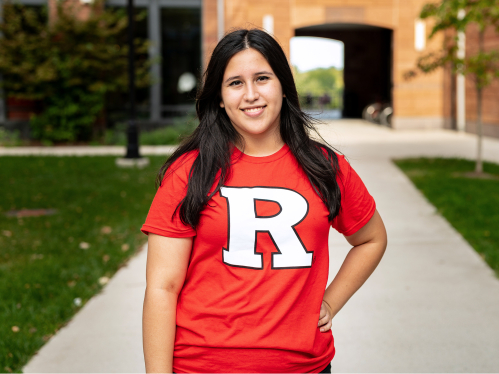



My mom helped me realize how special the Latinx community is. She would take me to these amazing backyard community fundraising events where we would come together for an undocumented student struggling to pay tuition or a family without healthcare whose child is fighting cancer. I realized that supporting one another represents what it means to be an American, even if not everyone had the paperwork that said so.
Tania Martinez
Tatyana Aguilar
Class of 2022
Edward J. Bloustein School of Planning and Public Policy
School of Arts and Sciences
Rutgers-New Brunswick
Although I am the first generation of my family to be born in this country, my mother was brought here to the United States as a baby, so I consider her the true first-generation American.
Feeling like I am two generations away from my heritage, I do my best to stay as connected as possible. I am of Salvadoran and Nicaraguan descent and am very close to my grandparents. I celebrate my heritage through music, language, and food; I studied Spanish at the academic level here at Rutgers. In my teens, I started speaking to my grandparents only in Spanish. I hated speaking my language because I had only English speakers around me as a child and felt like an outcast; now, I am overcompensating for all those years I spent hating my heritage.
Now that I live on my own, I always call my grandma to ask her how to make my favorite Hispanic foods that I loved eating growing up. I want to feed our people's food to my children one day and teach them Spanish and be proud of their heritage. I try my best to represent myself, my family, and my people, and I am doing that through my education and achievements. When I see myself graduating this coming May with my B.S. in Public Health, I am reminded of the sacrifices my grandparents made when they dropped out of grade school to provide for their families, I am reminded of the two jobs my parents and grandparents had to work here in the United States because immigrant pay was so little, and I am reminded of my family in Nicaragua and El Salvador that didn't have the opportunity to do what I am doing today. These are just a few ways I celebrate my heritage.
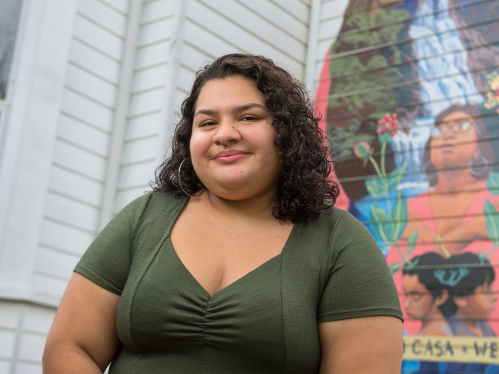
Carlos Pareja
First-Year Medical Student
New Jersey Medical School
Identifying as a Hispanic man is a very large part of my identity, which was formed through my immediate family, and strengthened through life experiences.
In June of 1995, my parents immigrated to the United States from Peru with my sister and I when we were both still infants. Although I was raised in the United States, I have always had a strong connection to my country of birth. Growing up, my parents would call our relatives frequently to maintain the strong familial bonds. My childhood memories also include many of the challenges that come with being a Hispanic immigrant. Spanish was the only language spoken in my household for most of my childhood, and this led me to start public school under the ESL curriculum, which focused on teaching me English while also having to follow standard academic classes.
Although growing up as a Hispanic immigrant had its challenges, it is also something I have always been very proud of. I grew up in a predominantly Black and Latino community that was rich with many cultures, so I never felt like an outsider. This allowed me to broaden my musical taste, my culinary taste, and even my language beyond that of just a Peruvian. After I graduated high school and enlisted in the Navy, I was for the first time in my life in a predominantly white crowd. Being a Hispanic male from the Northeast definitely made me unique relative to many of my peers, but I embraced my differences rather than shy away from them. I made many lifelong friends throughout my five years of service, which embraced my differences and learned from them. I can absolutely say that I am very proud of my culture and am excited to one day be a Hispanic doctor.
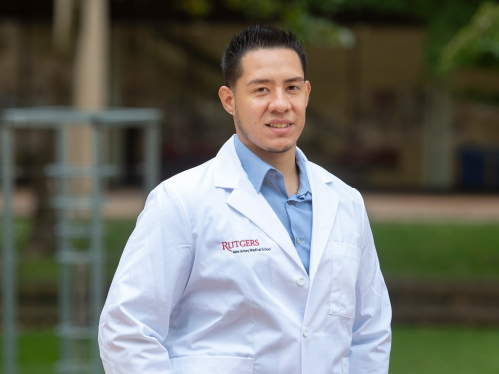
Rashel Bernal-Reyes
Class of 2023
School of Arts and Sciences and Edward J. Bloustein School of Planning and Public Policy
Rutgers-New Brunswick
I am proud of identifying as a Latina or Mexican-American woman because it has provided a community everywhere I go. When I'm at home and school, I can find myself in groups of people who can relate to one another because we're Latinx. We grew up on the same music, shows, hobbies and holidays, and we can still celebrate them as we get older and that's a beautiful thing. Being Latina/Hispanic means more than just the language we speak or the food we eat because it's more about what we can do for each other, how we communicate, and how we can stick together to help each other.
Language is fundamental when validating someone's identity. Latina "equals" women, Latino "equals" men, but not everyone identifies under this gender binary. You can be non-binary or gender non-conforming and still identify as Latinx, and it should be acknowledged. I have no issue when referring to other people as Latinx because it just means using gender-inclusive language.
The least we can do as Latinx folks is to help each other out and create an environment where we do not marginalize ourselves more by disrespecting each other's form of identification.
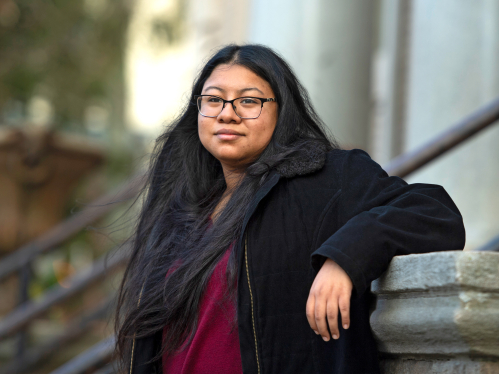



Photos by Nick Romanenko, Ron Downes Jr. and Adam Giovanelli